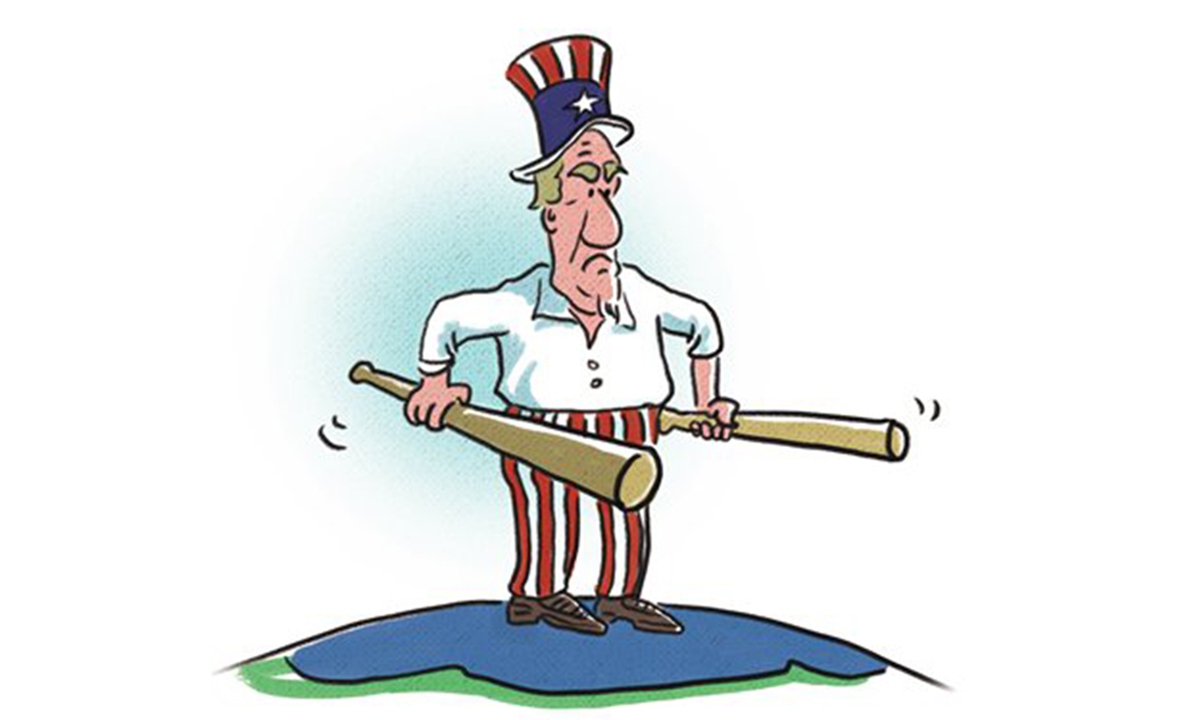
Illustration: Liu Rui/GT
With Washington increasingly viewing China as a steely ideological rival, US Secretary of State Mike Pompeo, in a recent speech, called for "a new alliance of democracies" to counter China. This has aroused the interest of scholars stuck in a cold war mentality. An op-ed published in the Atlantic on Sunday offered suggestions for Washington on how to organize an alliance that can "stop China from imposing its values."
A group of politicians and scholars in the US are full of prejudice and fear of China's rise. They hysterically want to build an anti-China alliance to contain China as the US did with the Soviet Union during the Cold War era. To justify their attempts, they accused China of posing threats to the US and the West in terms of ideology and values, and of trying to infiltrate the West with Chinese values.
Shaping China as an ideological enemy that intends to export values to the West and subvert the Western political system has been considered the simplest way to "unify" the so-called Western free democracies to form an anti-China alliance. But is the US really aiming at safeguarding Western values by launching a mobilization campaign to suppress China? Few believe so. The real purpose of the US is to create trouble for China's rise so that it can maintain its hegemony.
Allegations of values exports are unfounded. Differences in political systems between China and the West have led to frictions in values and ideologies. But China is not a country that exports values and ideologies. China has no intention to change the political system and lifestyles of the US and other Western countries. In its interactions with other countries, China has insisted on the philosophy of win-win cooperation, and never imposed its values on others.
But differences in values have provided an excuse for Washington to rally the so-called free democracies against China. In the eyes of the US elites, China's "original sin" is that its rise has threatened the hegemonic position of the US in the international system. The US will use every possible excuse to thwart China's development to maintain its own hegemony.
Does Washington really care about Western values? The US' heavy-handed suppression on TikTok, a video-sharing app from a Chinese company that operates in the US in strict compliance with local laws, lays bare US hypocrisy. TikTok is a free and open platform that allows users to display their creativity. It is a popular platform in the US that millions of Americans use to communicate with each other, including their displeasure with the current US president. If the app is banned in the US - it could be banned very soon - it would be a violation of the freedom of speech and free market competition, two values that the US holds dear. How can the US on one hand claim to protect Western values from Chinese infiltration while on the other hand trample on Western values?
TikTok has become a thorn on the side of the US as it has challenged the interests and market position of US tech companies. The US targets the app for the sake of maintaining its high-tech hegemony.
The US will continue to make an issue of the so-called threats China poses in values and ideology to justify its crackdown on China. But the US hegemony can hardly be sustained in such a barbaric way.




